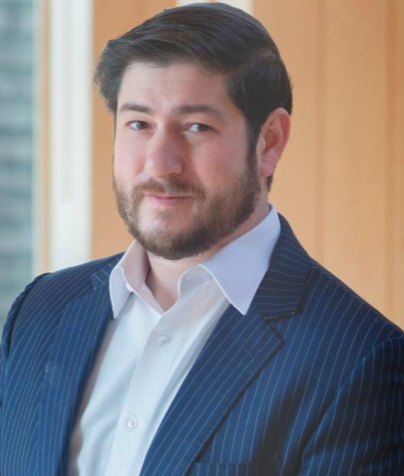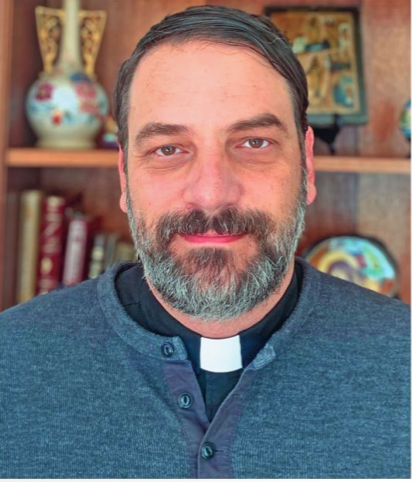Hamptons Soul: Embrace the Quiet

Father Constantine Lazarakis of the Greek Orthodox Congregation, and Jewish Center of the Hamptons Rabbi Josh Franklin speak on the value of silence during this quiet time of year on the East End.

Rabbi Josh Franklin
During summers in the Hamptons, residents complain constantly about the traffic, the lines at the supermarkets, and how difficult it is to get a reservation at a restaurant. In the winter, the common complaint we hear is the opposite: “It’s too quiet!” For many people, the lingering sense of quiet feels disconcerting. When you live out here full time, though, you learn to embrace the blessings of the quiet.
When I resided in New York City, I never really had any sense of silence in my street-side five-story walkup on the Upper East Side. There was always a car horn, an ambulance siren, trash truck, loud neighbor, or some ambient noise that permeated every second of my life. New York City is an experience of constant stimulation. With all the sights and sounds, you are bombarded by stimuli. It’s hard to experience the blessings of quiet when the world around us is too noisy.
Silence isn’t just a lack of sound, rather it’s the sound of a pregnant nothing. In Jewish mysticism, there is a concept called “ayin,” which is an emptiness that is full of possibilities, a silence that isn’t empty or barren, but fills us with endless blessing.
The idea of ayin might best be illustrated by the story of a piece of music called “4’33,” composed by John Cage. At its premiere, John Cage sat down at the piano, raised his hands over the keyboard, and sat immobile for 4 minutes and 33 seconds, then lowered his hands. Cage explained that music is composed of two elements, notes and rests. Bach, Mozart, and Beethoven have written music made up entirely of notes, so I composed one piece entirely of rests. There is an art to silence, and in silence, we have the potential to see the world and ourselves differently.
As we continue on into the winter season, don’t fight the quiet, lean into it. Embrace the sound of silence. Susan Cain, author of the book Quiet: The Power of Introverts in a World that Can’t stop Talking, notes that data from recent studies show people learn better after a quiet stroll through the woods than after a noisy walk down a city street. In embracing the quiet, find an empty beach to walk along, or perhaps go explore one of the many Hamptons hiking trails (there are no ticks in the winter). Even for extroverts like me, people need quiet, and there’s perhaps no better place or time to find it than a Hamptons winter.

Father Constantine Lazarakis
I’ve often thought of the time we find ourselves in now as the hard part of the winter. Summer crowds are all but forgotten, the Christmas festivities all done, New Year resolutions have, by now, either gone the way of good intentions, or become part of our routine. Even the weekenders are down South or out West. The East End is cold and quiet. Most of us either can’t wait to get away or can’t wait for spring. But it occurs to me that, if we are willing accept it, there is something very valuable in this hard part of the winter.
The great (if also controversial) Catholic luminary, Thomas Merton said, ”In a world of noise, confusion and conflict it is necessary that there be places of silence… In such places, love can blossom.” Unfortunately, our current cultural norms have made silence and stillness almost unattainable. Our phones and watches ping all day, we feel an absurd compulsion to respond to every notification immediately, and when we are not distracted, we are ironically unsettled. Our addiction to distraction has made silence unsettling, and we are terrified of being unproductive in moments when we are not engaged in some activity. And everyone has to have (and articulate) an opinion about everything.
A prominent Orthodox Christian theologian, Kalistos Ware, writes, “Silence is not merely negative — … a temporary cessation of speech — but… it is highly positive: an attitude of attentive alertness, of vigilance, and above all, of listening.” In silence, we can come to understand our truest selves. In our truest selves, we can come to know God. In knowing God, we can learn to REALLY love. Why not let the cold and quiet winter of the East End be a time when we learn to listen and to love? Embrace the silence.



